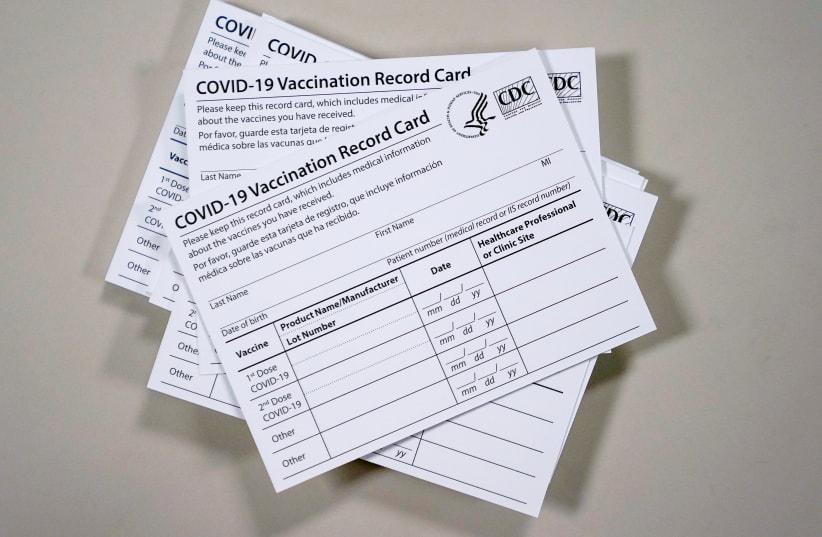Any traveler entering Israel who has been vaccinated abroad can undergo a serological test, and if the presence of antibodies is verified, they are exempt from mandatory isolation, the Health Ministry representative told The Jerusalem Post.
However, it is still unclear what the exact guidelines to receive the test will be, and whether those who arrive at Ben-Gurion Airport will be informed of this opportunity.
With most of the world well behind Israel in the vaccination campaign, and the airport shut down since the last week of January, the question of how to handle people jabbed abroad was not relevant until very recently.
With more countries moving forward with inoculating their populations, and with Ben-Gurion set to reopen, an increasing number of individuals who were vaccinated abroad are likely to enter the country.
Even with the airport mostly shut down, some people vaccinated abroad have already arrived, and their experience has been anything but smooth.
A group of new olim (immigrants) who landed from New York on Monday appeared to have been the first to take advantage of the option of taking a serological test, but only after fighting their way to get approval for it.
“We received the first shot of the coronavirus vaccine in the US, we got infected with COVID and then we received the second shot. We did a serological test in New York and our antibodies’ level was extremely high,” Chaim and Judy Freud told the Post.
The couple made aliyah on Monday on a special flight for new immigrants.
“Before coming our aliyah adviser told us to get tested and to get the doctor’s notes attesting antibodies notarized, but when we arrived, Israel did not accept it,” the Freuds said.
At the moment, no foreign vaccination certificate is recognized in Israel. As the authorities wait for relevant international bodies to develop internationally accepted standards, the country is working with several nations to sign bilateral agreements for mutual recognition of the documents. Such agreements have already been reached with Greece and Cyprus, even though they have not come into effect yet.
A serological test seems to offer a good solution in the meantime. However, the Freuds, as well as their fellow olim, were not immediately informed that they could receive it.
As current regulations require for all those entering the country, all new immigrants were sent to a hotel, which the couple described as a very hard experience.
“The room is very small, there is no Internet connection and no balcony, in spite of what they had promised us. I have a severe peanut allergy, and they delivered Bamba to my door. I have been eating only bread and water,” Judy said.
After the couple heard about the possibility of undergoing serological tests from friends, they worked to get permission from the Home Front Command, which is running the hotel, to get tested.
On Wednesday morning they were authorized to get tested at the Shamir Medical Center at the cost of NIS 150 each. However, they were told that the results could take between eight hours and two days, and afterward they will need to be processed before they are allowed to leave.
Other immigrants managed to get tested on Tuesday – also after hearing about the opportunity through word of mouth. The results arrived on Wednesday morning. However, they were told that the special governmental committee currently in charge of approving requests to enter the country needed to green-light their release before they could leave the hotel, and the approval would not arrive earlier than Thursday.
As they were the first travelers to get tested for antibodies, the rules were still being developed, they were also told.
